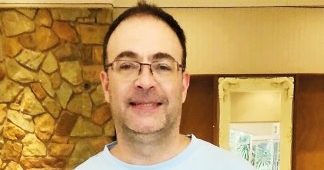click to dowload our latest edition
CLICK HERE TO SUBSCRIBE TO OUR NEWSLETTER


Published
2 years agoon
By
Steven GruzdLow turnout was the biggest feature of South Africa’s fifth local government elections since the country’s democratic transition. Some blamed COVID-19, the weather, the inefficiency of the Independent Electoral Commission, or the long weekend created by a public holiday for voting on a Monday. But there are much deeper problems behind this apathy.
It was a low-key election in which the stakes were high. There were fewer posters on fewer lampposts than in previous elections. Personally, the only contact made with me was one flier in my post box. It was from the incumbent Democratic Alliance (DA) councillor, running this time as an independent candidate. No one knocked on my door or sent me an email or an SMS. I ignored political posts on social media. And when I entered the voting booth, there were only a handful of parties I recognised out of more than 30 listed.
Out of a population of 60 million, 42.6 million people were eligible to vote, but only 26 million had registered as voters. Only 12.2 million actually cast their ballots. This is just 20% of the total population, and 46% of registered voters. The biggest message was how frustrated citizens are with politicians and poor service delivery. Many have lost faith in the political system and the value of their vote. This will damage democracy and the legitimacy of those elected.
Although its leaders put on a brave face, there’s no doubt that the ruling African National Congress (ANC) was the biggest loser in these polls. At the time of writing (on Wednesday morning) with 65% of the results tabulated, the ANC had dropped to 46.21% of the national vote. This is the first time it has dipped below 50% since 1994, and it continues its steady decline from previous polls.
The larger opposition parties, the DA (22.35%) and the Economic Freedom Fighters (EFF) (10.23%) are still dwarfed by the ANC. They should have been able to capitalise on the profound disillusionment with the ANC’s performance. Their results instead showed only marginal increases in the national picture, with regional variations of course, especially in the Western Cape where the DA remained entrenched. Many voters disappointed in the ANC simply didn’t register or stayed at home, unwilling to vote for the party that brought liberation but also unwilling to vote against it.
There has also been a proliferation of smaller parties and independent candidates, as anyone who looked at the length of their ballot papers can confirm. The one that made the biggest splash was Herman Mashaba’s ActionSA, which has become an important player in Johannesburg and Tshwane (Pretoria). He will be wooed by the larger parties for support in the municipal coalitions that will need to be formed. Mashaba is seen as a kingmaker with the votes he’s gathered, a role many smaller parties may hold across the country (including the EFF in many metros).
Coalitions first became a major feature of local government politics in 2016 when the ANC lost outright control of several large cities (the metros). This trend has continued and deepened in this election, with a further erosion of the support for the ANC, and not only in cities.
These hung councils will require political horse-trading of a kind familiar to those who follow Israeli politics, with all its instability and compromise. History has also shown that municipal coalitions haven’t always had the best interests of their voters in mind, and have crashed on the rocks of politics. The contours of these complex coalition negotiations will emerge in coming days and weeks.
Zooming in on the metros and wards where the majority of South Africa’s Jewish population resides, as in previous elections, the DA dominated. It will win Cape Town outright, and be a sizeable player in Johannesburg, Tshwane, and has made significant inroads in eThekwini (Durban). The final results of the individual wards where the Jewish community lives were unfortunately not yet available at the time of going to press.
If this election showed me anything, it’s that though many are sick of the corruption, mismanagement, and poor service delivery by the ANC, they haven’t found a viable, electable alternative. They have punished the ANC not by voting for the opposition, but by not voting at all. The shine of liberation is slowly but surely coming off the ruling party, but the opposition is splintered and political parties simply don’t transmit the message that voters want to hear.
This will be an extremely challenging five-year term in local government for those chosen to serve. Will there be a party that speaks better to me and the millions in 2024?

Karin
Nov 4, 2021 at 2:36 pm
I honestly think ActionSA will be the be best party going forward. Mr Mashaba stands for the people. He has no hidden agenda and detests the corruption in the ANC. He has made it clear that he will never go into a coalition with them, he may however consider a coalition with the DA which will be a win win! Lets wait and see.
Andrew g
Nov 4, 2021 at 6:58 pm
Very interesting take Steven